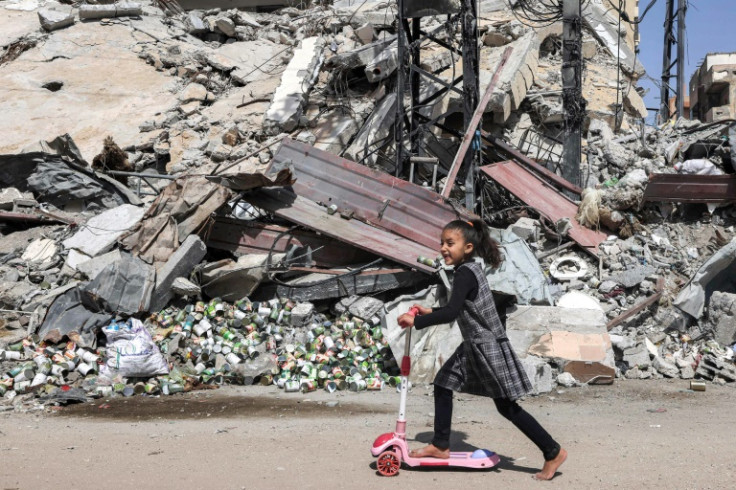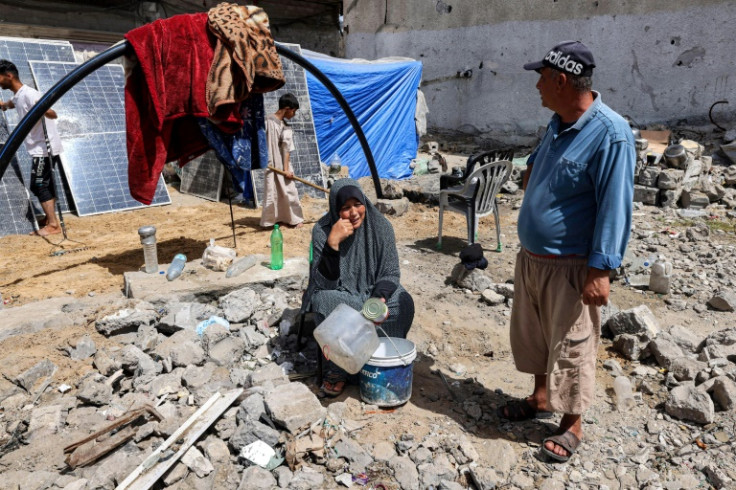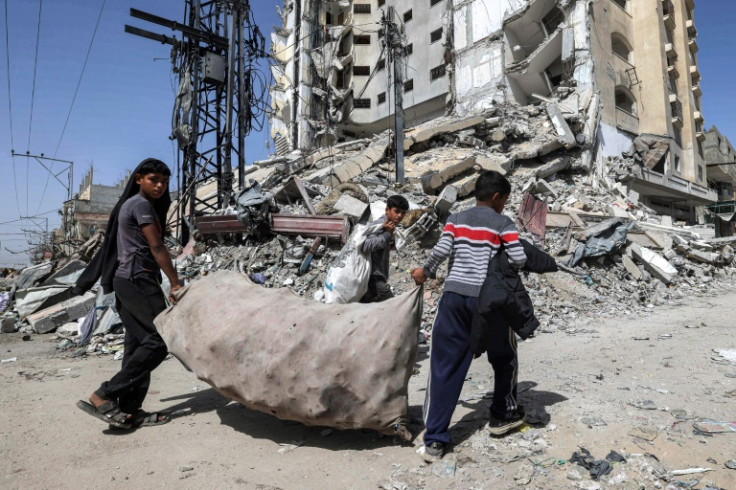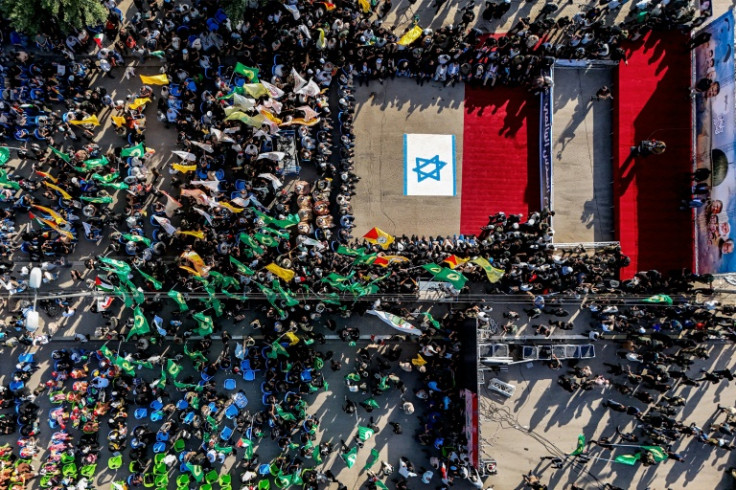Negotiators Expected In Cairo As Israel-Hamas War Nears Six-month Mark

American and Israeli negotiators were expected in Cairo over the weekend for a renewed push to reach a ceasefire-hostage deal in a war that has raged for nearly half a year.
Ahead of the talks, US President Joe Biden wrote to the leaders of Egypt and Qatar urging them to dial up pressure on Hamas to "agree to and abide by a deal," a senior administration official told AFP on Friday night.
The United States, Qatar and Egypt have engaged for months in behind-the-scenes talks to broker a ceasefire and an exchange of hostages for Palestinian prisoners, but have made no headway since a week-long truce in November.
The White House confirmed that negotiations would occur this weekend in Cairo, but would not comment on US media reports that CIA Director Bill Burns would be attending, along with Israel spy chief David Barnea, Qatari Prime Minister Mohammed bin Abdulrahman Al-Thani and Egypt's intelligence chief Abbas Kamel.
Israel and Hamas, which negotiate through intermediaries, have traded blame for the lack of progress.
"This basic fact remains true: There would be a ceasefire in Gaza today had Hamas simply agreed to release this vulnerable category of hostages -- the sick, wounded, elderly, and young women," the senior Biden administration official said.
Hamas officials and Qatari mediator Al-Thani have previously accused Israel of stymying the truce with objections over the return of displaced Gazan civilians and the ratio of prisoners to hostages.
During a phone call with Israeli Prime Minister Benjamin Netanyahu on Thursday, Biden pushed him to "fully empower" his negotiators to reach a deal.
A staunch backer of Israel, Biden's patience with the immense toll inflicted by the war on Gaza appears to be waning, especially after the killing of seven aid workers.
With both international and domestic outrage mounting, Biden has warned of a reassessment of US support if more is not done to protect civilians.
Allies have been pressing Biden to leverage the billions of dollars in US military aid to Israel.
More than three dozen US lawmakers on Friday signed a letter to Biden urging him to reconsider the "recent decision to authorize the transfer of a new arms package to Israel, and to withhold this and any future offensive arms transfers until a full investigation into the airstrike is completed".
The Israeli army, known as the IDF, announced it was firing two officers after finding a series of "grave mistakes" led to the drone strikes that killed seven World Central Kitchen aid workers on Monday.
It was a rare admission of wrongdoing by Israel in its campaign to root the militant group Hamas out of the Gaza Strip, where the health ministry says more than 33,091 people, mostly women and children, have been killed.
In response to the IDF's preliminary findings on the strike, Australia's Foreign Minister Penny Wong said Saturday it was "not sufficient".
World Central Kitchen said Israel "cannot credibly investigate its own failure in Gaza", noting that its staff was attacked despite having "followed all proper communications procedures".
WCK said its operations in Gaza remain suspended after the attack, while top global aid groups said relief work has become almost impossible.
"In its speed, scale and inhumane ferocity, the war in Gaza is the deadliest of conflicts -- for civilians, for aid workers, for journalists, for health workers and for our own (UN) colleagues," UN chief Antonio Guterres told a UN Security Council briefing on Friday.
At the same briefing, Israeli ambassador Gilad Erdan insisted the "only reason" aid fails to reach Gazan civilians "is because Hamas loots it and the UN is incapable of handling the capacity of supplies".
Following the Biden-Netanyahu call, Israel said it would allow "temporary" deliveries through additional aid routes, without specifying when that would begin.
For the 2.4 million Gazans, simply procuring food and water in the relentlessly bombarded strip has become a torturous struggle.
Since January, Palestinians in famine-threatened northern Gaza have eaten an average of just 245 calories per day -- less than a can of beans -- since January, according to Oxfam.
"Living in tents is difficult, everything is hard. Securing water and food is difficult," said Gazan Siham Ashour, who like more than a million others has been displaced to the sprawling encampment in the strip's southernmost city Rafah.
The war has also consumed much of the wider region, with hostilities between Israel and Iran and its proxies triggering fears of a broader conflict.
In Iran, thousands of people chanted "death to Israel" at a funeral in Tehran on Friday that coincided with annual commemorations in support of Palestinians.
Iran has blamed Israel for a strike on its consulate in Damascus that killed seven Revolutionary Guards, and has vowed retaliation.
Hezbollah said Friday that three of its fighters had been killed in exchanges with Israel. Its ally Amal said it had also lost three fighters to an air strike in southern Lebanon.
The Israeli army said in a communique that it had bombed a "military complex" used by Amal and targeted several regions of southern Lebanon.
Palestinian militants also took around 250 hostages, about 130 of whom remain in Gaza, including 34 the army says are dead.
Tehran has denied any direct involvement in the attack.



© Copyright AFP {{Year}}. All rights reserved.





















